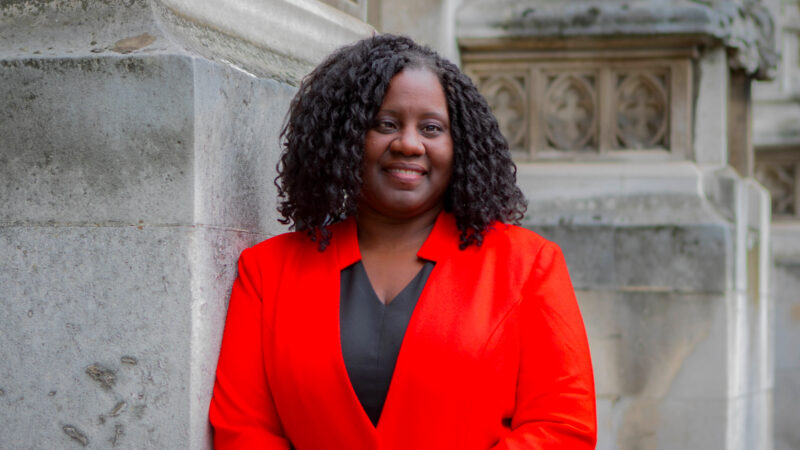
Today, countries across the world recognise International Equal Pay Day, which acknowledges the efforts to ensure equal pay for equal work across the globe. Its encouragement of governments to set targets and outline strategies is welcome, but warm words will only get us so far: action is what is needed.
As a woman in parliament, I stand on the shoulders of giants. It is 50 years since the passing of The Equal Pay Act, a watershed moment in our history implemented by a Labour government and led by Barbara Castle, Labour’s then Secretary of State for Work and Employment. She backed the 850 women sewing machinists who bravely withdrew their labour from the Ford factories in Liverpool and Dagenham after they were paid 15% less than their male counterparts and decided enough was enough.
The principle of equal pay has been fought for and won. But the struggle continues, not just in this country but also across the world. The significant gender pay gap remains, currently standing at a staggering 17.3%, with the U.N estimating that the gap is estimated to be 23% globally. For all the talking and the nodding, we are nowhere near equal pay.
The government’s feet must be held to the fire on this: the last Labour government reduced the gender pay gap by 7.7%, whereas progress under the current Tory government has almost ground to a halt with a decrease in the pay gap of only 2.4% since 2011.
This makes the government’s suspension of mandatory gender pay gap reporting at the onset of the pandemic earlier this year even more negligent. Covid-19 thrives on inequality, and there is a plethora of evidence that the pandemic is deepening pre-existing inequalities and exposing injustices in social, political and economic systems. These in turn amplify the impact of the pandemic.
Nishi Mayor, of Business in the Community, has urged businesses to continue to submit the data. This would be a positive step. The pandemic has shown that women are more likely than men to take over caring duties, more likely to be made redundant and make up most of the workforce within the health and social care sector. It is more important now than ever to remain focused on gender pay goals.
A UN brief in April of this year said: “Across the globe, women earn less, save less, hold less secure jobs, are more likely to be employed in the informal sector. They have less access to social protections and are the majority of single-parent households. Their capacity to absorb economic shocks is therefore less than that of men.” Research conducted by the House of Commons Library in 2017 showed that women have already shouldered 86% of austerity. Given this was a choice made by the government, it is only right that the government reinstates mandatory gender pay reporting to ensure that action is taken and support provided if the gap continues to widen.
Labour launches Connected this weekend, after our conference was sadly postponed due to the pandemic. It is an honour to be able to open Women Connected tomorrow alongside our leader, Keir Starmer. Our movement has always been about women coming together and fighting for a fairer world. I am hoping you can all join us this weekend as we discuss how Labour can ensure a just and more equal world for all workers. It may be half a century since that ground breaking act, and things may have got slightly better, but as Michelle Obama once said: “You cannot take your freedoms for granted. Just like generations who have come before you, you have to do your part to preserve and protect those freedoms.”




More from LabourList
Which ministers have done the most and fewest broadcast rounds in year one?
‘Welfare reforms still mean a climate of fear. Changes are too little, too late’
Welfare bill: Which MPs are still voting against reforms?